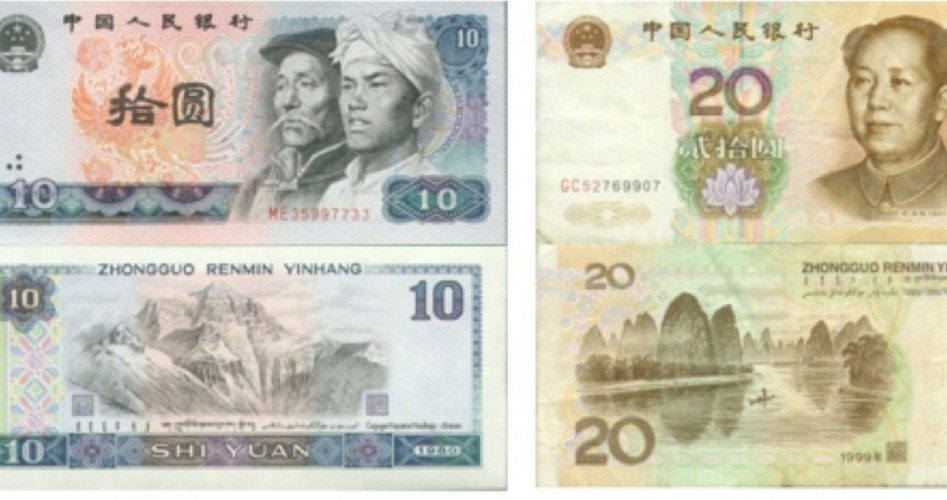
In an interview at CNN, Republican presidential candidate and billionaire businessman Donald Trump, was aghast at the decision by China’s central bank to allow the country’s currency to more closely reflect its real value by letting it drop by more than two percent:
They’re destroying us! They keep devaluing their currency until they get it right. They doing a big cut in the yuan, and that’s going to be devastating for us.
This was echoed by Thomas Gibson, head of the American Iron and Steel Institute: “Our government must address the massive damage that China’s undervalued currency is causing to our nation’s manufacturing sector, especially the steel industry.”
Trump failed to make clear exactly who “us” is. By allowing the yuan to be valued daily as the market deems it, rather than having it arbitrarily pegged loosely to the value of the dollar, every consumer at Walmart is going shortly to see a sign in their window: “Everything in our store is two percent off! Shop now!”
{modulepos inner_text_ad}
It may be, however, that Trump is instead referring to those American companies — General Electric, General Motors, Boeing, US Steel and so on — that fear they will see their sales decline in favor of Chinese manufacturers who are expected to reap the rewards of a cheaper currency. As free market economist Mark Perry explains:
The “manipulation” of China’s currency is actually to the distinct advantage of millions of American consumers and thousands of U.S. businesses buying products made in China, and benefits the U.S. economy overall.
But if the opinions of Messrs. Trump and Gibson resonate to the point where Congress or the White House enters the picture with pressure on the Chinese to raise the value of its currency, this would be equivalent to passing protectionist tariffs to aid those American firms that might otherwise suffer. Said Perry:
China’s currency manipulation is a form of foreign aid … to the direct advantage of millions of U.S. consumers, especially low income groups, and to the direct advantage of thousands of American companies buying imports from China.
But if China were forced to “revalue” its currency upwards, “there would be more harm to American consumers than benefits to American manufacturers, which would reduce our overall standard of living,” added Perry.
China is forced to operate in the real world and not according to Keynesian fantasies about how the real world ought to operate. For years the Chinese economy has been growing through massive increases in debt, and then overestimating its results. At present, according to “official” numbers coming out of Beijing, the economy has slowed somewhat recently, to around seven percent a year. If real, this would mean that the Chinese economy is growing at about four times faster than the U.S. economy. But real growth, according to Fathom Consulting, a global economic consultancy, is running at less than half that, at just three percent.
And even that number may be suspect. Housing prices have fallen year-over-year in 68 of 70 of China’s largest cities, while profits at key state-run industrial companies have fallen an astonishing 21 percent in just the last six months. Copper imports fell by 14 percent from January through April, while imports of rubber slid 16 percent and coke (made from coal) collapsed by 38 percent.
In addition, China’s competitors Japan and South Korea have let market forces more clearly reflect the value of their currencies (the yen and the won, respectively), allowing them to siphon off business that otherwise would have gone to China. This was reflected by a decline in China’s exports by 8.3 percent in July compared to a year ago.
Efforts to prop up the Chinese stock market, which began earlier this year to reflect the suspicions that many of the numbers were phony, included buying up shares, demanding brokerage houses prop up the market and then lending them the money to do so, mandating that owners of companies buy back more of their shares (while prohibiting them from selling them), allowing margin accounts that are “under water” to continue to trade (thus avoiding margin calls that would drive the markets down further), and investigating short sellers in the market. This propped up the Shanghai Index slightly, but investors remain nervous about its phony rebound.
The last trick pulled out of the hat is letting the yuan seek its own level in the world currency markets. It has rallied by more than 10 percent since 2014 thanks to support by the country’s central bank. But that has cost it dearly, drawing down its foreign currency reserves as it has bought the yuan. Recent loosening of capital controls has allowed wealthy Chinese to move their wealth offshore more easily. And this doesn’t count the billions it spent in propping up the stock market.
Back in March, Chinese Premier Li Keqiang told the Financial Times:
We don’t want to see further devaluation of the Chinese currency because we can’t rely on devaluing our own currency to boost exports.
We don’t want to see a scenario in which major economies trip over each other to devalue their currencies. That will lead to a currency war, and if China feels compelled to revalue the RMB [yuan] in this process, we don’t think this will be something good for the international financial system.
Of course, Chinese officials said they changed the policy regarding the yuan “to better reflect market forces.” But what they are really doing is admitting that Keynesian boot-strapping has finally come to an end.
The current drop in the yuan compared to all currencies has only just begun. Those signs on the window at Walmart might have to be changed to read: “Everything in our store is now 10 percent off! Shop now!”
A graduate of an Ivy League school and a former investment advisor, Bob is a regular contributor to The New American magazine and blogs frequently at www.LightFromTheRight.com, primarily on economics and politics.



